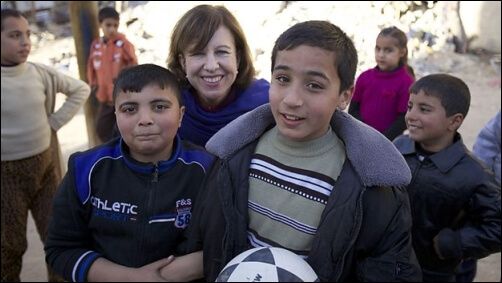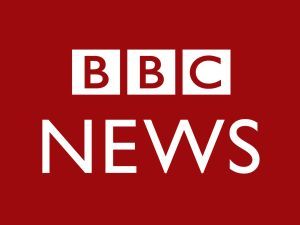The BBC and its translators leave me at a loss for words.
A documentary, Children of the Gaza War (part one aired last night), came under criticism because reporter Lyse Doucet and the Beeb’s translators made a poor judgement call. Whenever Palestinian kids used the word Arabic word, Yahud (which means Jew), the translators translated it as “Israeli.”
The Jewish Chronicle explains:
The BBC’s chief international correspondent said that Gazan translators had advised her that Palestinian children interviewed on the programme who refer to “the Jews” actually meant Israelis.
In one instance, a Gazan child says the “yahud” are massacring Palestinians. However the subtitles read: “Israel is massacring us”.
Canada-born Ms Doucet said: “We talked to people in Gaza, we talked to translators. When [the children] say ‘Jews’, they mean ‘Israelis’.
“We felt it was a better translation of it.”
It wasn’t a better translation. In Arabic, Yahudi means a Jew (plural is Yahud). Yisraili means an Israeli (plural is Yisraileen). Full stop.
Several problems came into play here.
1. The Gaza children

A Palestinian friend told me that Palestinians commonly refer to Israelis as Yahud. It may have begun out of hostility, but has become common usage. I’m also told that more educated Palestinians sometimes do make the distinction and use the word Yisraili. This provides a window into the Beeb’s thinking, but Doucet’s not off the hook.
The kids Doucet talked to were either born after Israel disengaged from Gaza, or too young to have any memories of “the occupation.” They grew up with a purely Palestinian education and media, both of which indoctrinate kids to deny the existence of Israel.
And if Israel doesn’t exist, neither do Israelis.
This internal Palestinian logic poses is an uncomfortable truth for Doucet. Acknowledging the denial would be an act of brave, upright journalism, even if it spoils the Palestinian narrative of victimhood that sets the tone for so much of the Beeb’s Mideast coverage.
Alas, Doucet just couldn’t do that.
Rather than reflect this pervasive Palestinian denial, Doucet made a judgement call that A) covers it up, and B) did it so poorly, the Yisraileen like me and Yahud of the UK can’t help but feel the Beeb insulted their intelligence.
2. The translators
 The Gaza translators the Beeb relied on are part of a bigger issue.
The Gaza translators the Beeb relied on are part of a bigger issue.
The Western media depends on freelance Palestinian (and Israeli) writers, photographers, and cameramen (collectively known as stringers) as well as the assistance of “fixers,” who help reporters get access, navigate the foreign land, and avoid trouble, among other things.
Stringers know the area, and employing them is a less expensive option than flying in entire reporting teams. Also, it’s not a bad thing for Big Media to provide job opportunities for the locals.
The problem is when the Palestinian support team brings its own baggage to the coverage. Consider the following:
• Foreign correspondents who get in trouble have the support of their papers and, in a worse-case scenario, they can go home. Not so with their Palestinian counterparts who live under the thumb of either Hamas or the Palestinian Authority. That would explain why a 2014 study found self-censorship rife among Palestinian journalists.
• Stringers and fixers like Nidal Rafa may have their own political agenda, or even have ties to terror organizations, such as BBC reporter Fayad Abu Shamala, who is also a member of Hamas. Fares Akram (then with the New York Times, now with AP), once raised eyebrows for the way he expressed his admiration of Yasser Arafat. Photographer Fadi Arouri staged news for profit and ideology.
So its not necessarily surprising that the Palestinian translators advised Doucet that the word “Israeli” is the appropriate translation of Yahud.
Which brings me to one last question I’ll ask in plain English:
Did Doucet’s translators take other liberties we should know about?
Featured image: CC BY flickr/Steve Jurvetson, CC BY flickr/Surian Soosay, CC BY-NC-SA flickr/Lance Page/Truthout.org with modifications by HonestReporting

